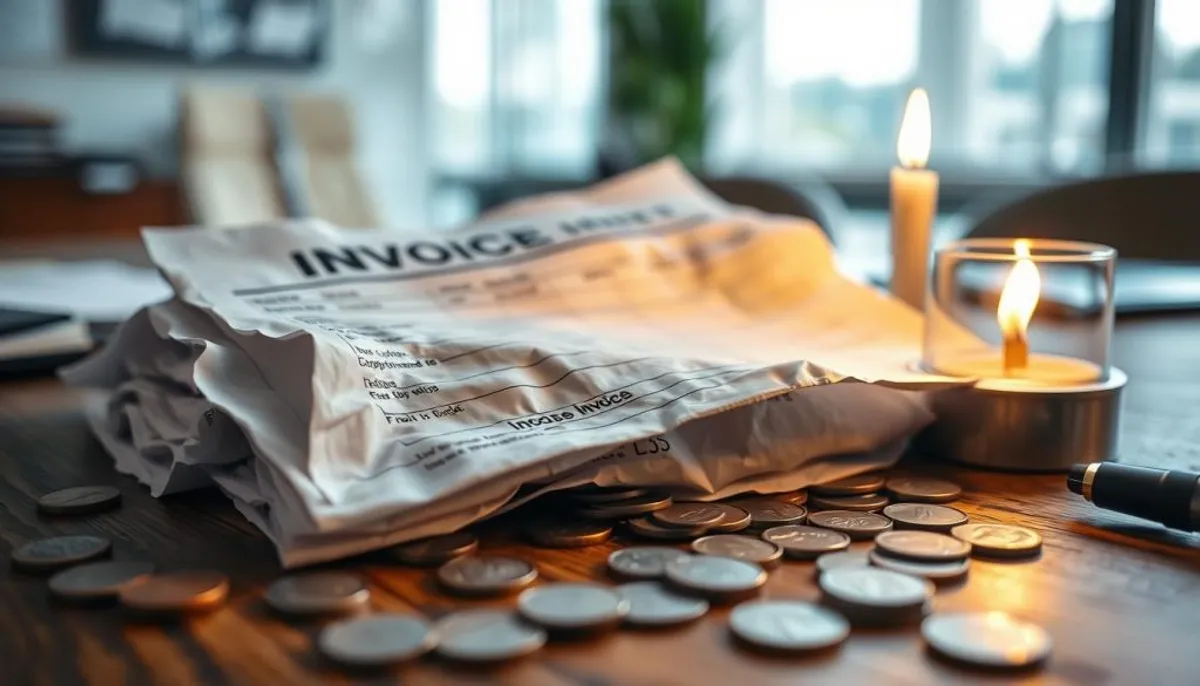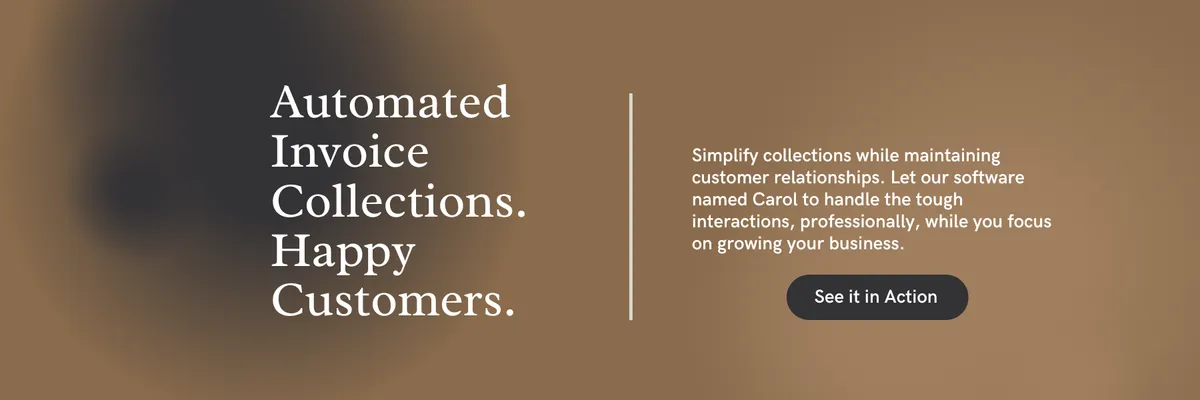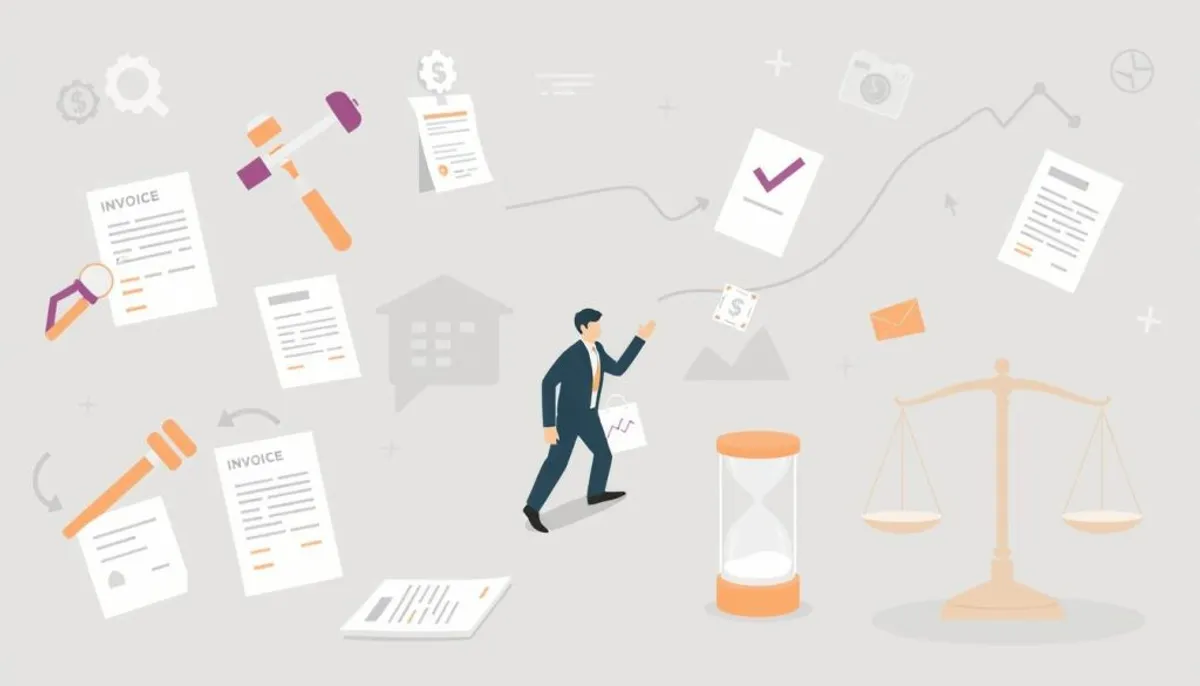If your small business uses invoices, you know the stress of unpaid bills. Customers might not pay on time for many reasons, like lost bills or unexpected costs. As a business owner, it’s hard to ask for payment without hurting your relationship with customers.
But, unpaid invoices can really hurt your cash flow. You must act to protect your business and keep it financially stable.
This article will show you how to handle unpaid invoices. You’ll learn about sending reminders and legal steps to get paid. By understanding the problems and taking action, you can lessen the effect of late or missed payments on your business.

Key Takeaways
- Unpaid invoices can disrupt cash flow, leading to financial constraints and potential business failure.
- Pursuing unpaid invoices can consume valuable time and resources, impacting business productivity and profitability.
- Establishing clear payment terms, sending reminders, and offering payment plans can help reduce instances of unpaid invoices.
- Taking legal action, such as small claims court, may be necessary for persistent non-payment issues.
- Maintaining open communication and implementing standardized business practices can mitigate the risk of future non-payment incidents.
The Impact of Unpaid Invoices on Your Business
Unpaid invoices can really hurt a business. They cause cash flow problems, making it hard to pay bills and employees. It also takes away time and resources from other important tasks.
Cash Flow Disruptions
When customers don’t pay on time, it’s a big problem. It stops the flow of money needed to run the business. This makes it hard to grow and invest in the future.

Time and Resource Drainage
Dealing with unpaid invoices takes a lot of time and effort. It takes away from other important tasks. This can lower productivity and hurt profits.
Unpaid invoices can also harm relationships with customers. They can make it harder to get loans or financing later. Keeping a good cash flow and payment history is key for success.
Strategies for Collecting Unpaid Invoices
When dealing with unpaid invoices, a strategic approach is key. Start by sending gentle reminders to the customer. Often, late payments are due to forgetfulness. Research shows that short subject lines and brief opening paragraphs boost email engagement.
If reminders don’t work, consider a payment plan. This allows customers to pay in installments, helping to keep the relationship strong. Offering various payment options can also improve the customer experience and lead to faster payments.
Involving Debt Collection Agencies
As a last resort, debt collection agencies can help with overdue payments. They specialize in recovering payments over 90 days late. However, be cautious as their fees can be high, sometimes up to 50% of the amount owed.
| Strategy | Effectiveness | Potential Drawbacks |
|---|---|---|
| Sending Reminders and Follow-Ups | Highly effective in resolving late payments | Requires ongoing effort and communication |
| Offering Payment Plans | Can help preserve customer relationships | May take longer to receive full payment |
| Involving Debt Collection Agencies | Specialized in recovering long-overdue invoices | Costly fees that can reduce final payment amount |
By using a mix of these invoice collection strategies, businesses can manage unpaid invoices well. This helps keep cash flow healthy.

Preventing Unpaid Invoices
To avoid unpaid invoices, it’s key to set clear invoice payment terms from the start. This means stating when payments are due, how to pay, and any late fees. This makes it clear to customers what’s expected.
Using automated invoicing and invoice reminders is also a smart move. It keeps customers on track with payments. This way, you can cut down on unpaid invoices.
Establishing Clear Payment Terms
When you send out invoices, make sure to include:
- When the payment is due
- How to pay (like credit card or bank transfer)
- Any fees for late payments
- Discounts for paying early
Implementing Automated Reminders
Use technology to send out reminders automatically. This could be:
- Reminders by email or SMS before the payment is due
- Follow-up messages for payments that are late
- Linking with accounting software to make invoicing easier
By being proactive with invoice payment terms and automated invoicing, you can lower the chance of invoice reminders and unpaid invoices.
When to Consider Legal Action for unpaid invoice
When a customer keeps refusing to pay a big invoice, you might need to take legal action. This could mean going to small claims court or hiring a debt collection attorney. But, think carefully about the costs and time it takes. Sometimes, it’s not worth it because of the money and effort needed.
Before you decide to go to court, talk to a lawyer. They can help figure out the best steps for your case. They’ll also tell you what you might expect to happen next.
When thinking about legal action for unpaid invoices, consider a few things:
- The size of the invoice: If it’s small, it might not be worth the cost and time of court.
- The customer’s financial situation: If they can’t pay and don’t want to, taking action might be better.
- How strong your case is: A lawyer can tell you if you have a good chance of getting your money back.
- The cost and time of court: It can take a lot of time and money, so think about if it’s worth it.
Deciding to take legal action for unpaid invoices should be a careful choice. It might be necessary in some cases. But, think about all the possible outcomes before you start.
Conclusion
Dealing with unpaid invoices can be tough for small business owners. But, there are ways to handle it well. Sending reminders, offering payment plans, and using debt collection agencies can help get payments back on track.
Also, being proactive is key. Set clear payment terms and use automated invoicing to avoid problems. This way, you can keep your customers happy and your business running smoothly.
Legal action might be needed sometimes. But, think carefully about the costs and benefits before going that route. By focusing on invoice collection, small businesses can keep their cash flow strong and grow.
With the right strategies, small business owners can deal with unpaid invoices effectively. This helps them stay financially healthy and keep their businesses growing.
Stay diligent, communicate well, and be flexible in handling unpaid invoices. This way, entrepreneurs can overcome this challenge and keep doing well in their industries.
RelatedRelated articles



